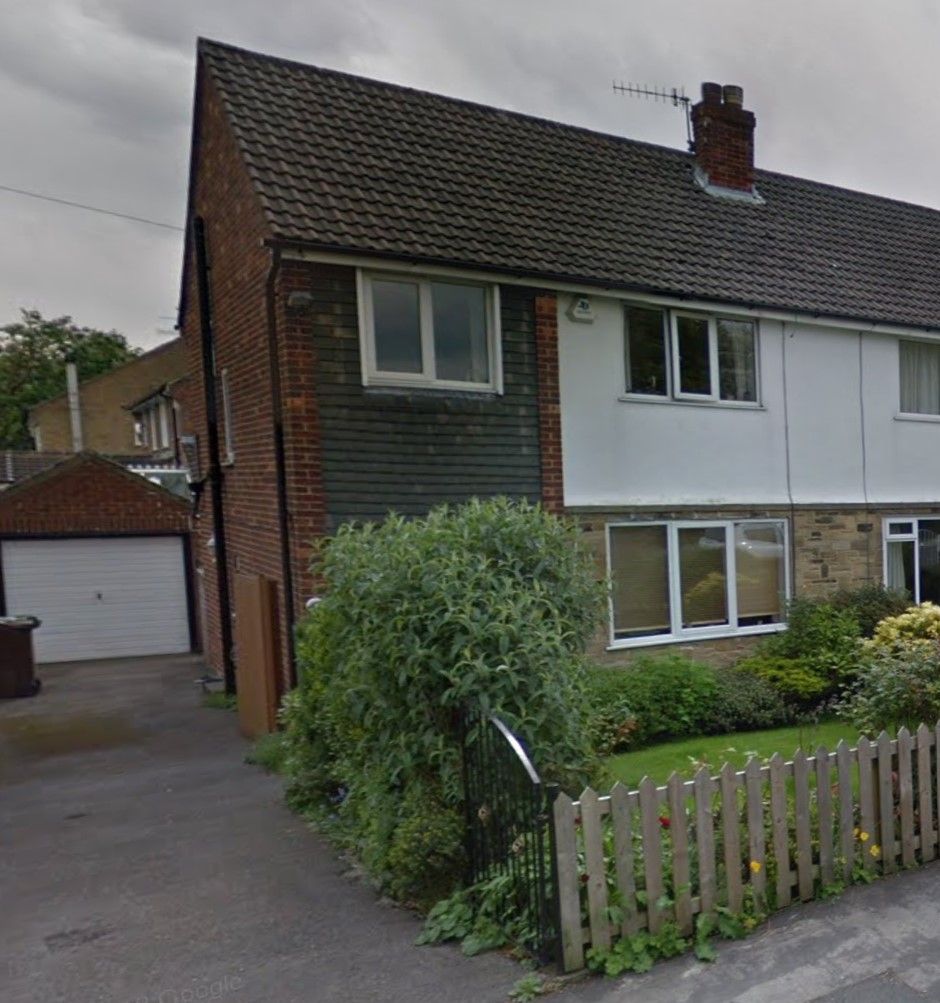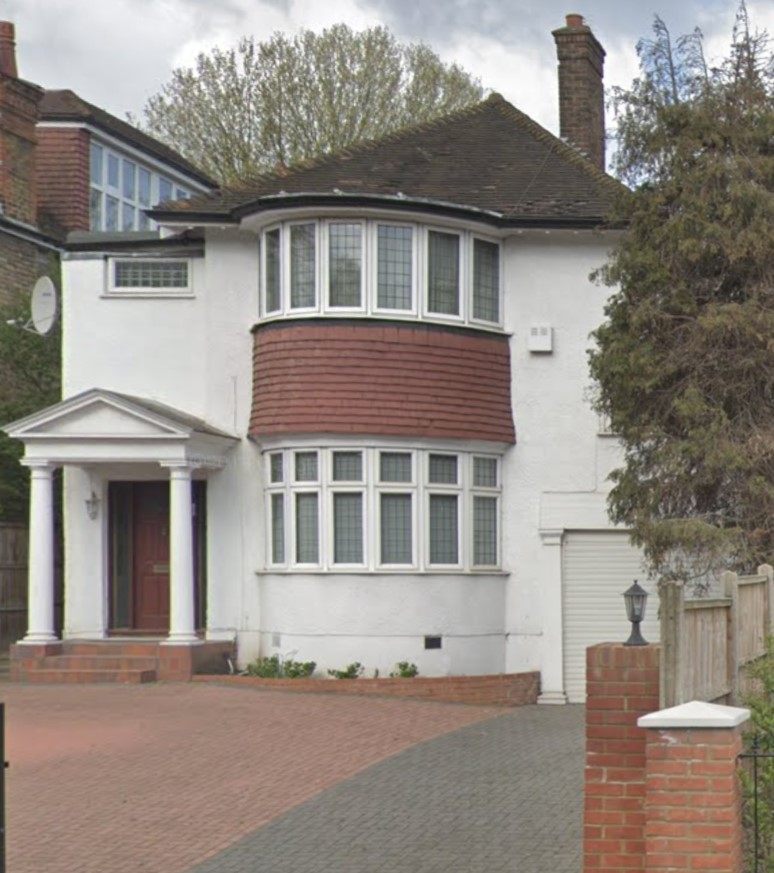
- Release tax-free equity from your home with no equity release fees
- No brokers fees
- No lenders fees
- Free valuation
- User your own solicitor
- Not necessary to make monthly payments
- Use the money you release for anything you like
- Continue to live in your own house
- 5.09%
How much money can I release?
You can get 70% of your property’s value. For example, if your house is valued at £290000 you can get £203000.





Business owners who could benefit from equity release tax planning
- Growing of rice Halesworth
- Manufacture of household and sanitary goods and of toilet requisites Wellington
- Raising of other animals Faringdon
- Manufacture of machinery for metallurgy Paignton
- Architectural activities Broughton
- Manufacture of wine from grape Stanhope
It’s common to encounter individuals seeking monthly payment equity release, lump sum lifetime mortgages, or monthly payment equity release options. However, Key Retirement, like Royal London Equity Release, is keen to see paperwork showing your personal situation in the form of pension statements.
Equity Release Loan To Value
- 55% monthly payment equity release Legal & General
- 60% loan to value (LTV) lump sum lifetime mortgages, Equifinance
- 55% loan to value, monthly payment lifetime mortgage Key Retirement
- 25% LTV home reversion plans Halifax

- Aviva Equity Release
- Bridgewater Equity Release Schemes
- Liverpool Victoria LV Equity Release Schemes
- More to Life Flexi Choice Drawdown Lite Plan
- Saga Equity Release Schemes
- More to Life Capital Choice Plan
- Stonehaven Equity Release Plan
- Lloyds Bank Equity Release Schemes
- Royal Bank of Scotland Lifetime Mortgage
- More to Life Tailored Choice Plan
- Canada Life Lifestyle Gold Flexi
- Liverpool Victoria LV Equity Release
- More to Life Flexi Choice Drawdown Lite Plan
- Saga home reversion plan
- Age Partnership Interest Only Lifetime Mortgage
- Bridgewater Equity Release Schemes
- Liverpool Victoria LV= Lump Sum Plus Lifetime Mortgage
- Nationwide Interest Only Lifetime Mortgage
- NatWest Interest Only Lifetime Mortgage
The mortgage lender will want to know if the property is a Freehold house or a Leasehold flat with a share of freehold and if the resident is an AST Tenant.
Equity Release LTV Percentages
The older you are and the sicker you are, the more money you can release.
UK Equity Release Scheme Providers
- the Telegraph
- Stonehaven Mortgage
- Bower
Downsides of Home Reversion Plans even with no equity release fees
A lifetime mortgage with flexible drawdown cash release can reduce the inheritance for your family, even with no equity release fees. A lifetime mortgage with flexible drawdown cash release may impact the ability to claim benefits. You may need to pay a broker’s fee, and some products expose you to changes in interest rates.




Canada Life Lifetime Mortgages

Areas where equity release is popular – no equity release fees
- Brentwood
- Warwick
- Kesgrave
- Telscombe
- Chilton
- Richmond
- Newport
- Eton
- Caistor
- Fakenham
- Highworth
- Rochester
- Bury
- Shepton Mallet
Popular loan to value ratios of Lloyds Bank interest only mortgages for over 70s, interest only lifetime mortgages for people over 60, Halifax mortgages over 70s, Legal & General mortgages over 70s, RBS mortgages for over 50 year olds and Nationwide Building Society equity release plans for people over 60 are 50%, 55% and 65%.
- Best Equity Release Provider
- Ipswich Building Society Over 60 Mortgage
- Loughborough Building Society Equity Release Interest Only
- Equity Release Belfast Rates 2025
- LV Equity Release Reviews Lease Mortgage
- Farns Interest Only Lifetime Mortgage Age
- Mortgage Over 55
Understanding Lifetime Mortgages and Equity Release Fees
Demystifying Equity Release and Its Cost Implications
Equity release has become a popular financial option for those over the age of 60 in the UK, especially when one might be asset-rich but cash-poor. However, there is a myriad of associated fees and costs that potential users should be aware of to make an informed decision.
Equity Release Solicitors and Their Role
Opting for equity release requires the services of an equity release solicitor. Their role is critical in ensuring that the legalities associated with releasing equity from your home are taken care of. As professionals, equity release solicitors help homeowners understand the implications, rights, and obligations related to the process.
If you’re wondering about equity release solicitor fees or looking for equity release solicitors near me, it’s essential to understand that costs can vary. Some solicitors might charge a fixed fee, while others might bill based on the property’s value or the complexity of the work involved.
The Various Costs Associated with Equity Release
Upfront Fees and Set-up Costs
When considering equity release, it’s crucial to understand the myriad of fees involved:
- Equity Release Set-Up Costs: These are fees related to the initial setting up of the equity release, which might include application fees, broker fees, and more.
- Arrangement Fee: Also known as the arrangement fees or loan arrangement fee, this is what lenders charge to set up the mortgage. It covers the administrative costs and can vary significantly between providers.
- Valuation Fee: Potential users often ask how much a valuation fee costs. A valuation fee covers the lender’s cost to assess the value of your property, determining how much can be borrowed against it.
- Saga Equity Release Fees: Some providers, like Saga, may have their own specific fee structures. It’s always essential to get a clear breakdown to understand what you’re paying for.
- Equity Release Advice Fees: Many opt to take advice from professionals before making the equity release decision. This advisory cost ensures you’re making a sound financial choice based on expert guidance.
Ongoing Costs and Interest Rates
The nature of equity release means that there will be ongoing costs, primarily in the form of interest:
- Legal and General Equity Release Interest Rates: As one of the prominent players in the equity release market, potential users often use Legal and General equity release rates as benchmarks. The L&G equity release rates can clearly indicate current market rates.
- Compound Interest: One significant aspect to be aware of is the interest. While some plans might offer equity release without compound interest, many standard plans do compound the interest, meaning the amount owed can grow rapidly over time.
Assessing the Overall Cost of Equity Release
The true cost of equity release isn’t just in the initial fees or ongoing interest. There are various other considerations:
- Equity Release and Care Home Fees: If there’s a need for care in the future, taking equity release might affect one’s ability to cover equity release care home fees. This is a significant consideration for many older individuals.
- Transfer of Equity Solicitor Costs: If the property’s ownership structure needs to be changed, transfer of equity solicitor costs could apply.
- How Much Do You Pay Back on Equity Release? It’s essential to clearly understand how much will need to be repaid in the end. Tools like the legal and general equity release calculator can help provide an estimate, but individual circumstances can vary.
Is Equity Release the Right Choice?
While equity release can offer a lifeline in terms of financial flexibility, it’s not for everyone. It’s critical to assess all fees, from solicitors fees for equity release to ongoing interest rates, to make an informed choice. Tools like compare equity release can help individuals evaluate different providers and offerings in the market.
Furthermore, understanding the intricacies of the mortgage arrangement fee, mortgage adviser fees, and the potential for no fee remortgage options can provide a clearer financial picture. If you’re considering this route, consult professionals, be it equity release solicitor near me searches or broader financial advisory services.
The Broader Mortgage Landscape in the UK
For those over 60, equity release is just one option. The UK mortgage landscape offers a wide range of choices for those looking to leverage their property for financial flexibility:
- Mortgage Advisor Costs: While there are fees associated with using a mortgage advisor, their expertise can help navigate the complex world of mortgages and find the best deals, potentially saving money in the long run.
- Average Cost of a Mortgage: Understanding the average cost of mortgage in the UK can help homeowners evaluate if equity release is a more cost-effective option for their needs.
- Mortgage No Fees vs. Product Fee Mortgages: Some mortgages come with no upfront fees, while others
- might charge a product fee. The difference can significantly affect the overall cost of borrowing. Product fee mortgage meaning essentially refers to an upfront charge by lenders for certain mortgage deals. It’s essential to weigh this cost against potential interest savings over time.
- Mortgage Initial Term Cost: The initial term cost mortgage refers to the cost associated with the mortgage during its initial fixed or variable rate period. It’s crucial to understand these costs as they can vary widely between different mortgage products.
- Solicitors Fees Mortgage: When purchasing a property or changing mortgage providers, solicitor fees for mortgage can be a significant outlay. However, in some scenarios, you might wonder can you add solicitor fees to mortgage UK? It’s possible with some lenders, but it’s essential to understand the long-term implications of doing so.
- No Product Fee Mortgages: These are mortgage products that come without an upfront product fee. However, they might have higher interest rates to compensate. It’s crucial to calculate whether the savings on the upfront fee outweigh the potential extra interest over time.
- Mortgage Arrangement Fees: Also known as booking fees, these are charged by lenders to secure a particular mortgage deal. They can be added to the mortgage amount or paid upfront.
- Lender Arrangement Fee: Similar to the mortgage arrangement fee, this is a cost that some lenders charge for setting up the loan. It’s essential to factor this into the overall cost of borrowing.
- Equity Release and the Road Ahead
- For many, especially those above 70, equity release can be a way to access funds tied up in their property. However, there are considerations beyond the initial equity release cost:
- How Much Does It Cost in the Long Run?: While equity release costs can seem straightforward initially, the long-term implications, especially with compound interest, can make the overall repayment amount substantial.
- Equity Release Near Me: Local providers or advisors can offer personalized advice. Whether you’re looking for equity release solicitors near me or simply exploring how much does equity release really cost, it’s worth consulting with local experts who understand the regional property market.
- The Future of Equity Release: As the UK’s population ages, demand for flexible financial solutions like equity release is expected to grow. However, products must be transparent, especially regarding fees like equity release set up costs, equity release advice fee, and potential equity release care home fees.
- The Decision to Release Equity
- Equity release can provide financial freedom for many, especially those who have significant equity tied up in their homes but need liquid funds for various reasons. However, it’s a decision that should not be taken lightly.
- From understanding the intricacies of legal and general equity release to evaluating equity release solicitors fees, being informed is crucial. The question, how much does equity release cost UK, can have varied answers based on individual circumstances, property value, and the specific equity release product chosen.
- Moreover, external factors, like the state of the property market in areas like London (where one might consider buying a flat in London or exploring cheap flats to buy in London), can influence decisions. In such a dynamic environment, being informed and consulting professionals can ensure homeowners make choices that align with their financial goals and needs.
- Whether considering equity release or exploring other mortgage products, the journey is filled with decisions. By understanding fees, from mortgage advisor costs to equity release charges, and seeking expert advice when needed, homeowners can navigate the landscape confidently, making choices that serve their best interests.
- Over 65 Mortgage
- High Rise Flat Interest Only Mortgage
- Melton Mowbray Building Society Over 65 Mortgage
- Yorkshire Building Society Lifetime Mortgage Over 55
- Buy-To-Let Drawdown Mortgage
- Nationwide over 75 pensioners mortgage Bad Credit
- Mortgages With Defaults On Credit File
- Harpenden Building Society Over 65 Mortgage
- Newcastle Building Society Interest Only Lifetime Mortgage
Understanding Lifetime Mortgage Interest Rates Over 60
The mortgage landscape can be complex, especially when understanding lifetime mortgage interest rates for individuals over 60. As homeowners approach retirement, they may consider accessing the equity tied up in their homes. This is where a lifetime mortgage, a type of equity release, becomes relevant.
Mortgage Costs and Lifetime Mortgages
Mortgages, by nature, come with several costs. From upfront fees to interest rates, the question, “How much will it cost?” is always at the forefront of homeowners’ minds. When delving into mortgage costs, it’s essential to factor in all associated expenses to gauge the true price of borrowing.
But lifetime mortgages for those over 60 add an added layer of complexity. With standard mortgages, monthly repayments help reduce the debt over time. In contrast, with lifetime mortgages, no monthly repayments are usually required, leading to compound interest accumulating on the borrowed amount.
Equity Direct Rates and Their Implications
Equity direct rates refer to the direct interest rates offered on equity release products. As with any interest rate, the lower the rate, the less the overall cost of borrowing. However, with equity release, and specifically lifetime mortgages, the compounded nature of interest can significantly impact the final amount owed.
Delving into Equity Release Rates Over 70
As homeowners age, their perspective on property equity might shift. For those over 70, the concept of equity release becomes even more pertinent. The idea is to unlock the equity from the property while still living in it.
How Much Does It Cost?
The question of “how much does it cost?” is crucial when considering equity release. While the upfront legal cost might seem manageable, the long-term costs associated with interest rates can be substantial. It’s essential to consult with a professional to get a clear picture of all potential costs, including those that might not be immediately apparent.
Navigating the Cost Queries
- How much does it cost to have?: This question often pertains to the cost of setting up the equity release, including valuation fees and application fees.
- How much it cost?: This broad question encompasses both the initial setup costs and the long-term interest costs.
- How much does it cost?: This question demands a detailed breakdown of costs specific to the type of equity release product or additional services, such as consultation or valuation.
- How much does it cost to get?: This typically relates to the total cost of securing an equity release, including all fees and the compounded interest over time.
The Mortgage Equity Loan Landscape
Another option for homeowners is the mortgage equity loan. Unlike lifetime mortgages, these loans allow homeowners to borrow against the home equity, making monthly repayments over a fixed period. The costs of these loans can differ from those of lifetime mortgages, so homeowners must assess which option best aligns with their financial goals.
Whether considering a lifetime mortgage over 60 or equity release rates over 70, homeowners must be knowledgeable. By understanding the intricacies of each product, from upfront fees to long-term interest implications, individuals can make informed decisions about leveraging their property’s equity.
- Aldermore Lifetime Mortgage
- Lifetime Mortgage Equity Release Scheme
- Newbury Building Society Over 65 Mortgage
- Monmouthshire Building Society Over 75 Mortgage
- Voluntary Payments Equity Release Rates 2025
- Beverley Bs Equity Release UK
- BISF Equity Release Retirement
- Bank Of Scotland Equity Release House
- Steel Frame House Cost UK
- Age Partnership Comparison
- Unmortgageable Property Equity Release
- Nationwide Equity Release Drawdown
- Equity Release Over 70 Providers
- Mortgages For 60 Plus
- Natwest Lifetime Mortgage Interest Only Rates
- Market Harborough Building Society Later Life Mortgages
- Equity Release Under 40 Interest Rate
- Farm Equity Release Schemes
- Cambridge Building Society Histon Retirement Mortgages
- Natwest Retirement Mortgage Interest Only
- Bad Credit Mortgage Providers
- Vernon Building Society Lifetime Mortgage
- Yorkshire Bank Pensioner Mortgage Calculator
- Age 50 Equity Release Advice
- Saffron Building Society Equity Release Broker
- Key Advice Lifetime Interest-Only Mortgage Broker
- Yorkshire Building Society UK
- lifetime mortgage for over 60s
- New Build Mortgage Calculator
- Nationwide Rio Mortgage
- Teachers Building Society Retirement Mortgage
- Flat Roofs
- Santander Over 60 Mortgage
- 55 Mortgage
Some of the most popular pensioner mortgage products include Lloyds over 60 lifetime mortgages, Barclays mortgages for over 70s, NatWest mortgages for over 65, Legal & General mortgages for people over 50 and Nationwide interest only retirement mortgages for over 70s.
